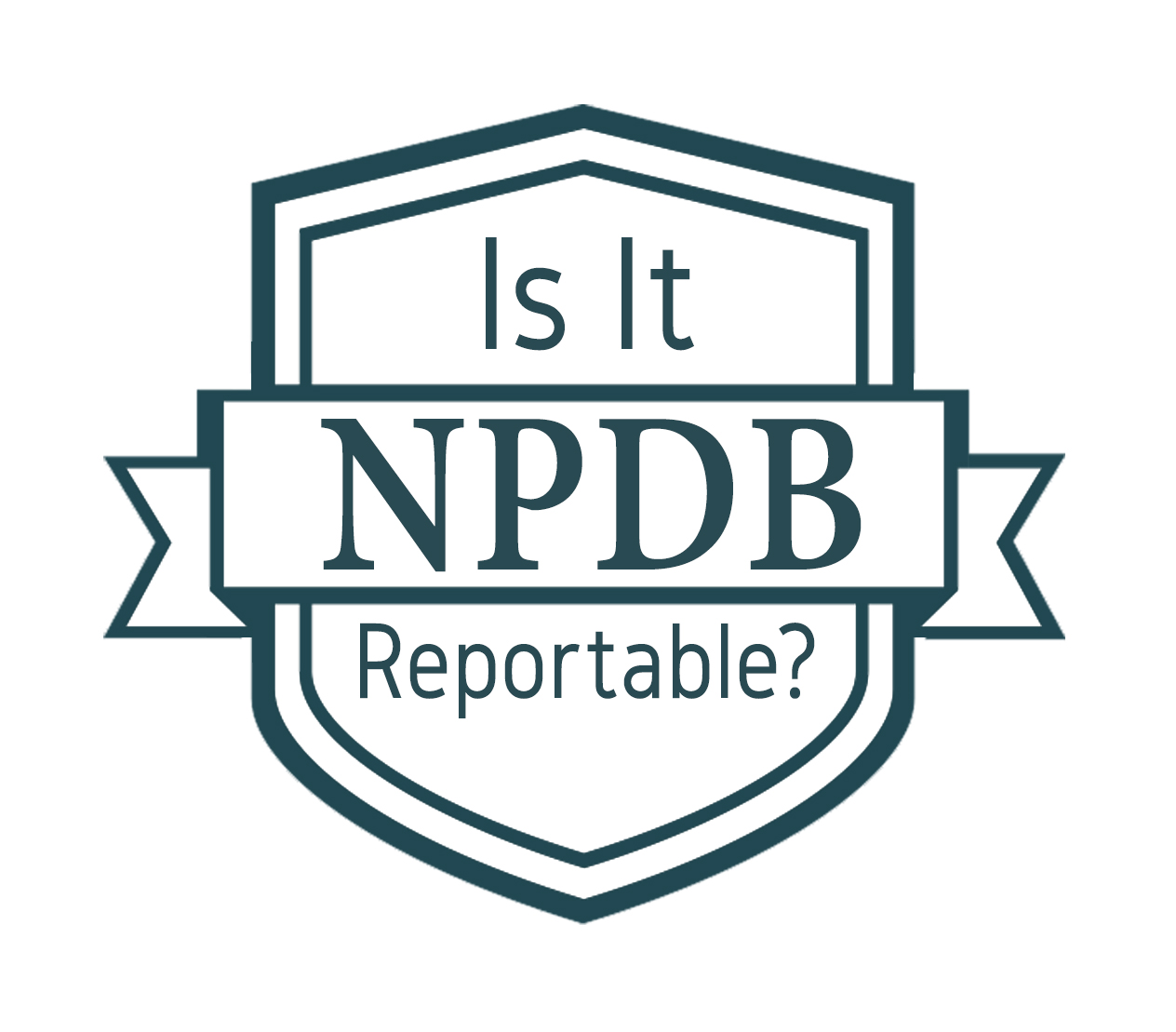NPDB Insights - October 2023
Start Using Multi-Factor Authentication Today!
The NPDB now offers multi-factor authentication, or MFA, as an easier and more secure way to sign in to your NPDB account. Using MFA makes it much more difficult for hackers to access your account. It only takes a few minutes to set up your account and start using MFA. Just sign in to your NPDB account, select Update User Account, and follow the instructions.
The NPDB will require the use of MFA by registered organizations in the future to access the NPDB secure web system. We will notify you at least two weeks before the mandatory date.

Is It Reportable?
An anesthesiologist is hired by the hospital's anesthesia group and receives temporary privileges while his application for clinical privileges is pending the formal review process. After the hospital receives several quality of care-related complaints about the anesthesiologist, the practitioner agrees to resign the temporary privileges and withdraw his application for full privileges in return for the hospital not investigating the complaints. Is this reportable?
Yes. The NPDB does not generally draw a distinction between adverse actions taken with respect to temporary or permanent privileges. Because the physician surrendered his temporary privileges in return for the hospital not conducting an investigation into issues related to professional competence or conduct, the surrender must be reported.

Is Your Health Plan Reporting?
There are many types of organizations that can register with the NPDB, and each one has distinct reporting requirements. The actions an entity must report generally depends on the organization's statutory authority.
Health plans must report the following:
- Adverse clinical privileges actions
- Other adjudicated actions or decisions
- Medical malpractice payments
- Civil judgments
Adverse Clinical Privileges Actions
Many adverse clinical privileges actions, which your organization may refer to as adverse panel membership or network participation actions, must be reported. Health plans must report any professional review action that adversely affects a practitioner's panel membership or network participation for more than 30 days. Health plans must also report the surrender of panel membership or network participation when a dentist or physician is either under investigation or when the surrender is in return for not conducting an investigation.
Health plans may also report these same actions when taken against other health care practitioners.
Other Adjudicated Actions or Decisions
Other adjudicated actions or decisions, such as contract terminations, are actions taken by a health plan against a health care practitioner, provider, or supplier that include the opportunity for due process and are based on acts or omissions that either affect or could affect the payment, provision, or delivery of a health care item or service. The regulations specifically exclude clinical privileges actions from "other adjudicated actions," so if a health plan takes a reportable clinical privileges action in combination with an other adjudicated action, both actions must be reported separately.
Medical Malpractice Payments
Health plans must report any payments made for the benefit of a health care practitioner in settlement or satisfaction (in whole or in part) of a written claim or judgment for medical malpractice against the practitioner. Health plans should not report a payment made solely as the result of a lawsuit or claim against itself.
Civil Judgments
Health plans must report any civil judgments against a health care practitioner, provider, or supplier that is related to the delivery of a health care item or service. Health plans must submit a report regardless of whether the civil judgment is the subject of a pending appeal.
Visit our Reporting Help Center, Reporting Infographics, or About Health Plans page for additional reporting guidance.

Dear NPDB
May I share my organization's query response?
It depends. The NPDB has strict confidentiality provisions in place to ensure our users' information is protected. Whether you can share a query response depends on with whom you are sharing the response and the credentialing relationship that exists.
When can I share a query response?
If your organization conducts its credentialing centrally with one decision-making body, and if it has a centralized peer review process, the query responses can be shared with the individuals involved in the decision-making process for which the query was submitted.
Query responses cannot be shared when a separate decision is needed because there is not a consolidated medical staff, single decision-making body, or centralized peer review.
See our How Many Queries Do I Need to Run? infographic for more information.
Can I share query information with the query subject?
You may share the results of a query response with the subject of a query as long as all of your entity information is redacted from the response (for example, your entity's name or Data Bank ID Number, etc.).
The latest updates and resources are available at https://www.npdb.hrsa.gov.
Previous editions of NPDB Insights are available in our archive.
 An official website of the United States government.
An official website of the United States government.

